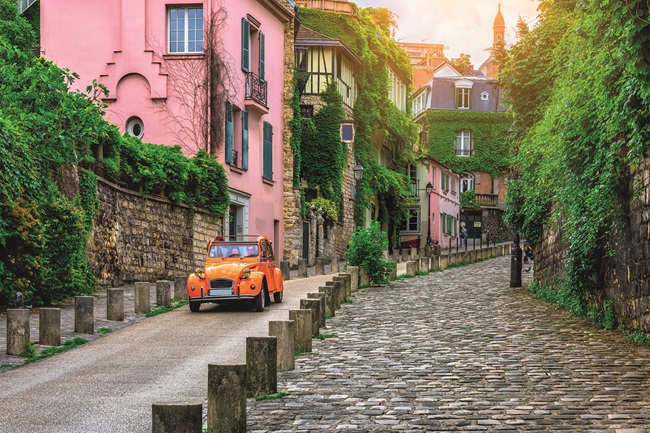How (Not) to Be Parisian: Driving Through the City
Stephen explains the advantages of going incognito when driving around France.
I confess, I’m Parisian. You may think that sounds uncharacteristic. Why confess instead of bragging? Aren’t we Parisians all over- conscious of our inherent superiority? Well, yes, most of us are sincerely convinced that we’re the most sophisticated inhabitants of planet Earth (and probably the other planets too, unless there’s one out there with better restaurants). But we’re also a little ashamed.
I should emphasise that this shame only applies when we’re outside Paris, in some rustic corner of the country like Lyon, Rouen, or one of those other French cities that thinks it’s civilised. When we stray beyond our hometown, sometimes it’s best to hide our sophistication.
It is now possible in France to choose whether your car’s registration reveals your approximate address. In the past, Parisians’ cars bore the number 75, the Marseillais drove cars marked 13, the Lyonnais 69 and Strasbourgeois 67.
More than a number
The numbers, as many of you will know, correspond to the départements, which (France being so wonderfully bureaucratic) are numbered in more or less alphabetical order. There are, of course, exceptions to this alphabetical rule (France being so gloriously revolutionary).
As a student, I used to find this very handy when hitchhiking. I spent a year in Perpignan, in the Pyréneés-Orientales (department 66). So if I was on my way home, standing at a roundabout in, say, Carcassonne (in Aude, department 11), and saw a car with a registration that ended in 66, I used to stick my thumb out with extra gusto.
Most people still register their cars according to their address, but as soon as the rules were relaxed, many Parisians decided to do away with the telltale 75. Some apparently chose 2A and 2B, the numbers for north and south Corsica. The island has a reputation for a lack of sang-froid behind the wheel, so the idea is that by registering your car there, you will discourage drivers from cutting you up on the motorway.
I went down the opposite track, choosing a registration that suggests I’m from a peaceful, rural department. This has the disadvantage of provoking Parisian drivers into bullying me at every junction, but as I only ever use the car to leave Paris, my suffering is short-lived. My strategy, you see, is aimed at non-Parisians. The worst thing you can be when driving around the rest of France is Parisian: instinctively, other drivers will hate you. You want to pull out of a side road? No one will give way. You’re double-parked for two minutes while you buy a sandwich? Any passing policeman will give you a ticket. In Marseille, Paris’s bitter southern rival, they’ll probably just shove your car into the harbour.
Telltale signs
On the other hand, tootling around France with my rustic registration number, I am treated with unflagging courtesy. No one hoots at me if I get lost and hold up traffic. I wave an apology and they think I’m just a poor, confused peasant. Similarly, in any service context outside Paris I hide my identity. My French is not perfect, but being Parisian is not all about language. Instinctively, if one of us is kept waiting for a micro-second by a receptionist or waiter, we will bristle, huff, tap our feet and then complain – thus, of course, ensuring that the service gets even worse (see above about France being gloriously revolutionary).
So outside Paris, I always remind myself to tone it down a notch. Life does not have to be hurried, receptionists don’t have to react instantaneously. Of course, when my trick comes off and I get excellent service thanks to my duplicity, I congratulate myself for pulling the wool over the eyes of these naïve provincials. A second confession: that shame I mentioned, about being Parisian, was pure hypocrisy. It had you fooled, though, didn’t it?
Stephen Clarke’s new Paul West novel, Merde at the Paris Olympics, is out now.
From France Today Magazine
Lead photo credit : © MARIE LISS
Share to: Facebook Twitter LinkedIn Email
More in column, French culture, French lifestyle, life in France, Paris
Leave a reply
Your email address will not be published. Required fields are marked *






REPLY